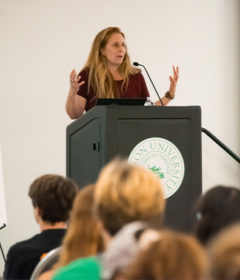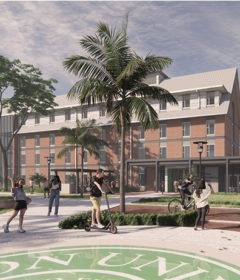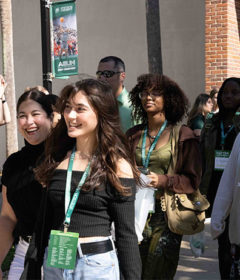A frayed knot: an anchor to many lives
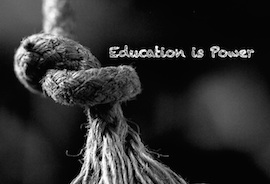
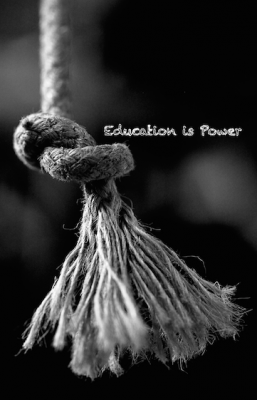 In a monumental effort to enlighten some 280 administrators and educators on the effects of poverty on children who are sitting right in their own classrooms, Volusia County School Superintendent James T. Russell said, “We must pray for those who have no one to pray for them,” expounding on Mother Teresa’s poignant words, “We must care for those who have no one to care for them.”
In a monumental effort to enlighten some 280 administrators and educators on the effects of poverty on children who are sitting right in their own classrooms, Volusia County School Superintendent James T. Russell said, “We must pray for those who have no one to pray for them,” expounding on Mother Teresa’s poignant words, “We must care for those who have no one to care for them.”
Russell, along with community members and activists, joined a Stetson University student panel, various community breakout session speakers and experts from across Volusia County and from around the globe at the Poverty and Homelessness Conference (PHC), sponsored by and hosted for the second year at Stetson University this fall. Founded and directed by Rajni Shankar – Brown, Ph.D., Stetson’s associate professor, director of Education Graduate Programs and the Jessie Ball duPont Chair of Social Justice Education, the PHC is an annual conference held at Stetson University’s DeLand campus to tackle the many issues of poverty.
“I developed this year’s PHC theme, Collective Action: Together We Rise, to honor Maya Angelou’s poem Still I Rise, and to signify the tremendous promise of working together to positively impact children’s lives and create a more just, sustainable world,” said Shankar-Brown.
Innocent children, whose very fabric of life has been frayed by visions of parents handcuffed and jailed right in front of them, parents with mental illnesses, some with suicide looming, parents who have lost their jobs and are then unable to pay their rent who then have to move intermittently between cars, shelters and shared housing, and even parents who died, were cloaked by the daily realities of the loss and lack of resources that accompany these random acts of cruelty.
Now grown, Stetson University’s own Gabriela Barros, M.Ed., ‘14, and the following four Stetson University undergraduates, Class of 2016: Chan’tia Vasquez, Tiffaney Langhorn, Alexander Greene and Chyina Powell, honored Stetson University’s significance in action team with their presence and contributions. As members of the student panel, they courageously recounted, mostly for the first time, the grim details they had experienced in their young lives for the PHC conference attendees.
“I can’t remember ever having a home” said Chyina Powell. “We lived with two other families in a one bedroom house. My mom lied to get me into a safer school, which was three hours away. Sometimes we had to walk. Sometimes my mom forgot about me and I walked by myself arriving home at 10:00 (at night).” At this point the somber, reminiscent Powell bravely added, “Once, all we had to eat at home for the month was a bag of potatoes. My brother and I took turns deciding who would eat a potato that day. That was our reality.”
Alex Greene revealed that his mornings began very early in order to catch the two buses then the train to an inner-city Atlanta school. “I made sure I made it to school to get my lunch, never sure if that would be my only meal that day.” He added, “I knew I was bright but I was also inconsolably angry due to my family’s poverty.” The chaos of constant upheaval is overwhelmingly unstable. “I decided I’d rather be homeless than deal with the insecurity and instability my family life provided.” Greene then added, “With rules and structure, my grandmother took me in. Because of my grandmother’s mentorship, I graduated second in my high school class.” Undoubtedly, she is Greene’s guardian angel.
Among intermittent homelessness, Tiffaney Langhorn found stability for a few good years when her family moved from New York City to Lake Mary, Fla. “Although I never really fit in the affluent, mostly white school, things got worse when the unthinkable happened. My dad was laid off. We were evicted and moved between my grandparents’ home, friends’ homes, and for a year from hotel to hotel,” Langhorn explained. “My parents separated; my dad lived in his car and suffered bouts of mental illness including suicide threats.” It was during this time that (the CBS show) 60 Minutes aired a story on youth and homelessness. Langhorn was interviewed. She credits a school organization called ‘Families in Transition’ with giving her family support through this time.
Not afraid, one after another, the panel of students recounted their stories, acknowledging their appreciation for the significance Stetson University showed them personally, and the undying gratitude they had for their scholarship awards. A majority also credited and paid homage to their grandmothers who saved them.
The conference focused on reflections from the past to change the future.
Opened by Stetson University Executive Vice President and Provost Beth Paul, Ph.D., she noted: “We must interrupt the ways in which children are marginalized by society.”
Keynote speaker, Donald Whitehead Jr., past president and current member of the board of directors for the National Coalition for the Homeless, took the conference attendees on his own journey of, “Most Unlikely to Succeed,” the real life story of his happy home to a life of homelessness and back again.
Pam Woods, liaison, District Homeless Education for Volusia County Schools, believes that the PHC, “causes attendees to differently approach this student sector, by increasing awareness and understanding while serving under-resourced students.”
Visibly shaken and concerned, Keisha Wallace, math teacher at Atlantic High School, had this takeaway: “I need to keep doing what I am doing to open the doors for others,” she said.
Wave after wave, the ripple effect of the Poverty and Homelessness Conference led to a high tide of the significance of Stetson University in action. The remnants of the lives that were tattered by their real-life traumas have been bonded together during their time at Stetson, woven unexpectedly into a beautiful tapestry.
What Stetson means to Greene, Powell, Langhorn, Vasquez and Barros, is a mentored place of learning; a knot to stop the fraying, by which to anchor the rest of their lives. But also, it means they can now be a lifeline to others through the newly found power in their vulnerability.
By: Caroline Skinner

